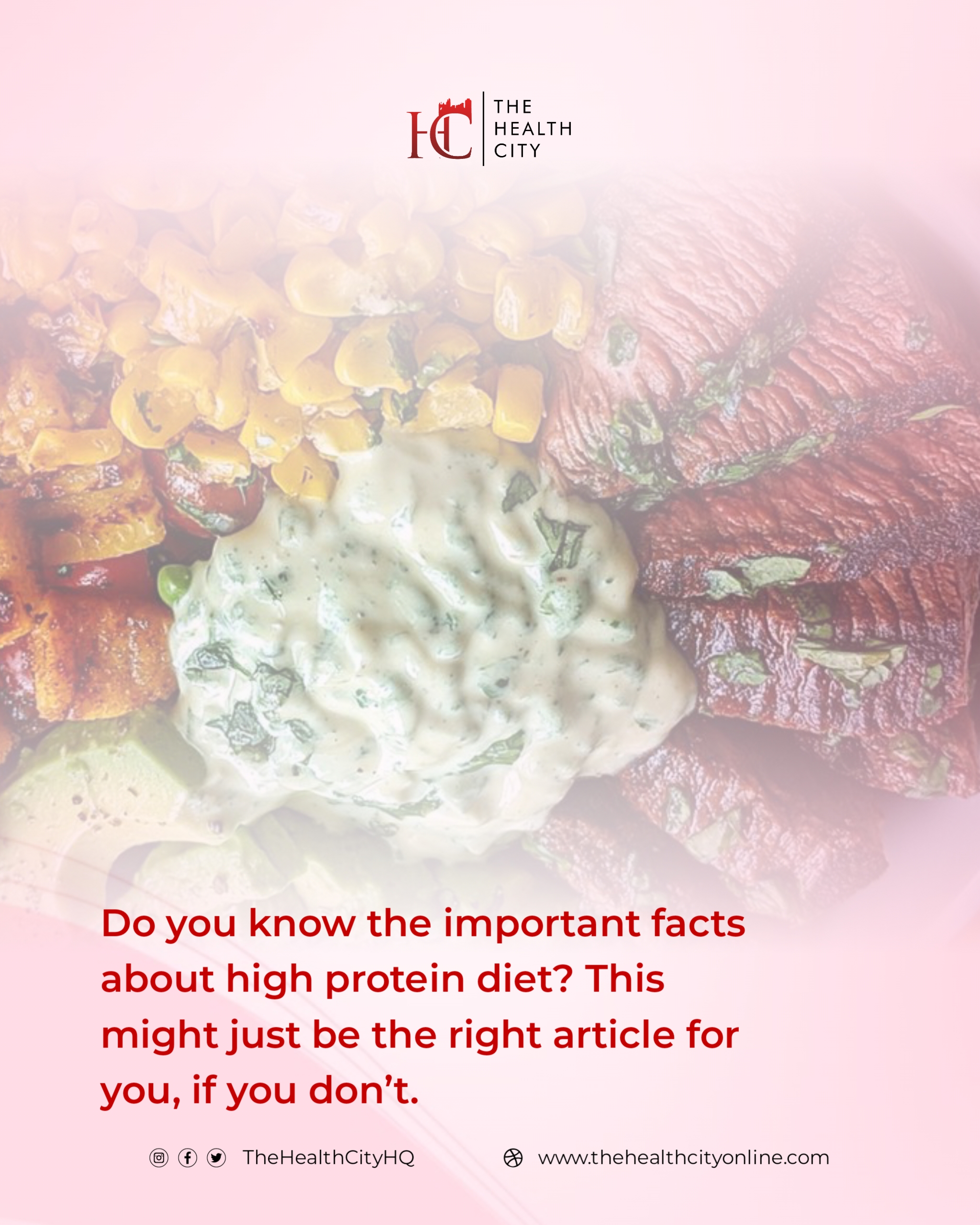
High Protein Diet
Recently, the word "protein" has gained popularity amongst fitness enthusiasts. A high protein diet has become important to them because it serves all cadres, whether you're looking to lose weight, gain muscles or just generally eat healthier. But can eating only proteins offer you these health benefits? Well, continue reading because in this article, we'll explore the intricacies of a high protein diet, it's pros and cons and who exactly needs it.
What Is a High-Protein Diet?
As the name suggests, a high-protein diet is a meal plan where the main attraction is proteins — this means that a significant portion of your daily calories comes from protein-rich foods such as meats, poultry, fish, eggs, dairy products, legumes, and nuts. The major goal of this kind of diet is to consume a higher amount of protein than the recommended daily intake, which is typically 0.8 grams of protein per kilogram of body weight for adults but a high-protein diet typically includes 1.2 to 2.0 grams or more per kilogram depending on your health goals and activity level.
Truly, a high protein diet supports muscle growth, improves metabolism, and increases satiety—helping people feel fuller for longer which will eventually lead to weight loss.
Who Is This Diet Recommended For?
If you have a sedentary lifestyle with minimal physical activity, DO NOT infuse more proteins than necessary into your diet. This kind of meal plan is suitable for:
1. Athletes and Bodybuilders: Protein helps repair and grow muscles. Since those in this category engage in regular workouts, higher protein intake is essential.
2. People Looking to Lose Weight: A high protein diets keep you fuller for longer periods this can boost metabolism and prevent overeating. It also helps preserve lean muscle mass during weight loss.
3. Older Adults: A diet rich in protein helps in maintaining muscle mass and strength which is beneficial to older adults.
4. Individuals with Certain Medical Conditions: People with conditions like type 2 diabetes, kidney disease, or certain gastrointestinal disorders may benefit from a high protein diet under medical supervision.
5. Individuals Recovering from Illness or Surgery: The body needs more protein to repair tissues and speed up recovery during periods of healing.
Now, in the fitness world, there's a rave where bodybuilders tend to eat more eggs with their meals and this has been interpreted to mean more eggs equals more muscles. Could this be true? One fact is that a single large egg accounts for 6-7 grams of high quality protein including essential vitamins like B12 and choline plus eggs are one of the most affordable and complete sources of protein. BUT, more eggs don't always mean more muscles because muscle growth depends on strength training (like weight lifting), adequate protein intake, overall calorie intake, balanced nutrition and rest.
Don't be a copycat, if you’re not engaging in resistance training, simply increasing egg consumption won’t magically give you bigger muscles. Also, the body can only use a certain amount of protein at a time. Consuming more than your body needs may lead to the following
- Allergies and intolerance
- Dietary imbalance
- Increased calorie load without added benefits
- Salmonella food poisoning from undercooked eggs
- High cholesterol especially for persons with underlying cholesterol concerns and heart disease
Eggs are not the enemy though, moderation is the key. If you're eating multiple eggs a day, consider balancing whole eggs with egg whites to reduce cholesterol while still getting the protein.
Conclusion
A high-protein diet can support many health goals—from weight loss to muscle building—but it works best when paired with physical activity and balanced nutrition. However, it's essential to understand that muscle building requires a comprehensive approach and not an overload of egg consumption.
Finally, it’s important to note that not everyone needs a high-protein diet. People with kidney disease, for example, may need to limit protein intake. Always speak with a healthcare provider or dietitian before making major changes to your diet.
Till I come your way again, keep the things you have learnt and stay healthy.🥂

 Ayomide Oloruntobi
Ayomide Oloruntobi
Latest Comments
No Comments Yet
To write a comment, You must be logged in
Login Here SIGN IN